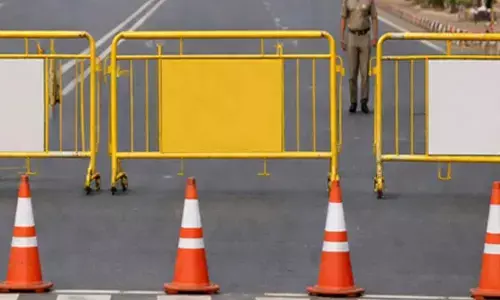'Emperor strikes' against tainted lawmakers!

Law on religious freedom: Love all; shun jihad, conversions
The most contentious and widely debated issue of public representatives such as Members of Parliament and members of Legislative Assemblies with criminal background once again caught the attention of the apex court on September 16
The most contentious and widely debated issue of public representatives such as Members of Parliament and members of Legislative Assemblies with criminal background once again caught the attention of the apex court on September 16. The Supreme Court has asked the Chief Justices of High Courts to formulate an action plan to rationalise the disposal of criminal cases pending against MPs, MLAs, and MLCs. The court also suggested that the action plan should cover the vital aspects such as total number of pending cases in each district, number of special courts presently available and more required, number of judges and categories of the cases, tenure of the judges to be designated and number of cases to be assigned to each judge.
A bench comprising Justice N V Ramana, Justice Surya Kant and Hrishikesh Roy passed these directions in a PIL filed by Advocate Ashwini Kumar Upadhyay.
The court also asked the High Courts to furnish the details such as expected time for disposal of the cases, distance of the courts to be designated and adequacy of infrastructure. The apex court also asked the Chief Justices of the High Courts to designate a Special Bench to be headed by themselves and other judges in order to monitor the progress of these trials.
The seriousness of the Supreme Court on this subject is evident from the fact that besides forming the action plan, the Chief Justices are required to give their comments and suggestions to the apex court, preferably within a week. The apex court's concern was revealed in its direction to the High Courts that all stay ordered cases should be reviewed and if a stay is considered necessary, the court should hear the matter on a day-to-day basis n dispose of the same, preferably within 2 months.
Indeed, this is a very sincere and honest effort by the highest court of the land as it aims to cleanse the body politique. When our august houses like Parliament and Assemblies are heavily infected with the criminal elements, nothing good could be expected from these houses. The rightful place for the criminals either masquerading as politicians, businessmen, industrialists, artists or simply social workers is the jail and not the sacred temples of democracy.
It is indeed a very sad state of affairs that we have not come up to the expectations of our great freedom fighters. Today all important spheres of life have been engulfed in corruption, violence and intolerance. The legislatures have become the wrestling-rings where vested interests challenge each other to settle political scores rather than using these citadels for the good of the common man. The divisive and anti-national forces within country often tend to misuse the public platforms with the oblique motives of capturing power and authority by all foul means.
Validity of customary law U/S 29 of HMA
"A plea of customary divorce is a valid defence in departmental proceedings initiated for misconduct of bigamy under Service Rules/Conduct Rules", the Madras High Court has ruled. The bench noted that it is well established by long chain of authorities that prevalence of customary divorce in the community to which parties belong, contrary to general law of divorce must be specifically pleaded and established by the person propounding such custom.
"The core question that is to be decided in this case is that whether the plea of customary divorce is a valid defence in the departmental proceedings initiated for an action of bigamy as defined in Section 3(b) of the Tamil Nadu Police Rules. In other words, Personal Law of the petitioner on the point of dissolution of marriage under customary practice of dissolution of marriage viz-a-viz misconduct of offence of bigamy under the Service Rules governing the police personnel", the court iterated.
Court orders FIR against Arun Shourie
The CBI court at Jodhpur (Rajasthan) has asked the CBI to file cases against former Union Minister Arun Shourie and former Disinvestment Secretary Pradip Baijal over the sale of an ITDC Hotel, allegedly at a loss of Rs 244 crore to the exchequer.
The court also directed the CBI to file cases against three others associated with the sale of Lakshmi Vilas Palace Hotel in Udaypur some two decades back.
SC on extreme penalty for deficient duty
A bench of the apex court comprising Justice Ashok Bhushan, MR Shah and R Subash Reddy held that the penalty of ten times prescribed under section 40 (1) (b) of the Indian Stamp Act cannot be mechanically imposed.
Dwelling with section 40 and other provisions of the Stamp Duty Act, the court observed that whenever statute transfers discretion to an authority, the discretion is to be exercised in furtherance of objects of the enactment.
Neither imposition of penalty of ten times under section 40 (1) (b) is automatic nor can be mechanically imposed, the court added.
The purpose of penalty generally is a deterrence and not retribution, the court observed and added 'when a discretion is given to a public authority, such public authority should exercise such discretion reasonably and not in oppressive manner.'










